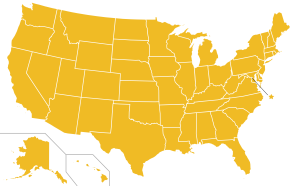1 Capítulo 1: ¡A descubrir! ¿Quiénes somos los latinos o hispanos?
¡A descubrir!
Actividad 1. ¿Quiénes somos los latinos o hispanos?
Instructions: Who are Latinos and Hispanics? Read the text and answer the following questions.

“Hispano” o “latino” se refiere a una persona de origen cubano, mexicano, puertorriqueño, centro- o suramericano o de otra cultura u origen español, independientemente de la raza. La diferencia entre los dos está en el origen de las palabras. La palabra “hispano” conecta a la persona con España por su historia colonial en Latinoamérica y por su lengua: el español. La palabra “latino” conecta a la persona con su origen de Latinoamérica o la cultura latina de Europa, pero no con la lengua española necesariamente.
Being Hispanic or Latino can be viewed as a matter of heritage, nationality, group, lineage, or country of birth of the person or the person’s parents or their ancestors before their arrival in the United States. People who identify their origin as Hispanic, Latino, or Spanish may be of any race. The difference between “Hispanic” and “Latino” is connected to the origin of the words. The word “Hispanic” connects the person with Spain by the colonial history in Latin America and by the person’s language: Spanish. The word “Latino” connects the person with their origins in Latin America or the Latin cultures of Europe, but not necessarily with the Spanish language.
- When it comes to describing their identity, most Hispanics prefer their family’s country of origin over pan-ethnic terms. Half (51%) say that most often, they use their family’s country of origin to describe their identity. That includes such terms as “Mexican” or “Cuban” or “Dominican,” for example. Just one quarter (24%) say they use the terms “Hispanic” or “Latino” to most often describe their identity. And 21% say they use the term “American” most often.
- “Hispanic” or “Latino”? Most don’t care—but among those who do, “Hispanic” is preferred. Half (51%) say they have no preference for either term. When a preference is expressed, “Hispanic” is preferred over “Latino” by more than a two-to-one margin—33% versus 14%.
Questions
- Do the terms “Hispanic” and “Latino” refer to peoples’ race?
- Do Latin people speak Spanish?
- Is the term “Hispanic” or “Latino” preferred to describe peoples’ identities?
- What is something that Hispanic people have in common?
¡A hablar!
Actividad 2. Los hispanos en los Estados Unidos.
Instructions: Read the following paragraph about Hispanics in the United States and complete the activities.

La población hispana en los Estados Unidos es muy diversa. Hay aproximadamente 58,9 millones de hispanos en los EE.UU. desde el año 2017. Esto representa un 18,1% de la población total de los Estados Unidos que es de 327,2 millones de personas (en el 2018). Esto es 21 millones más que en el año 2000. Hay muchos estados donde hay una presencia hispana muy grande. Los estados donde hay más hispanos en los Estados Unidos son California, Tejas, Arizona y Nuevo México.
The Hispanic population in the United States is very diverse. Since 2017, there have been approximately 58.9 million Hispanics in the United States. This represents 18.1% of the total population of 327.2 million in the US in the year 2000. There are several states where there is a great Hispanic presence. The states with the highest Hispanic populations are California, Texas, Arizona, and New Mexico. [1]
Questions
Answer the following questions. Then share your answers with a classmate.
- Do you know famous or relevant Hispanic figures in the United States? What are their names? What are they famous for?
- Are there Hispanic people in your family? Are there Hispanic people among your friends?
- Attribution: Text from this page is an adaptation of: "¡Chévere! Introductory Spanish I: 2.20: Cultura- Los hispanos en los Estados Unidos" by Erica Brown, Alejandra Escudero, María Cristina Montoya, & Elizabeth Small, OER SUNY, SUNY Oneonta is licensed under CC BY 4.0. ↵

